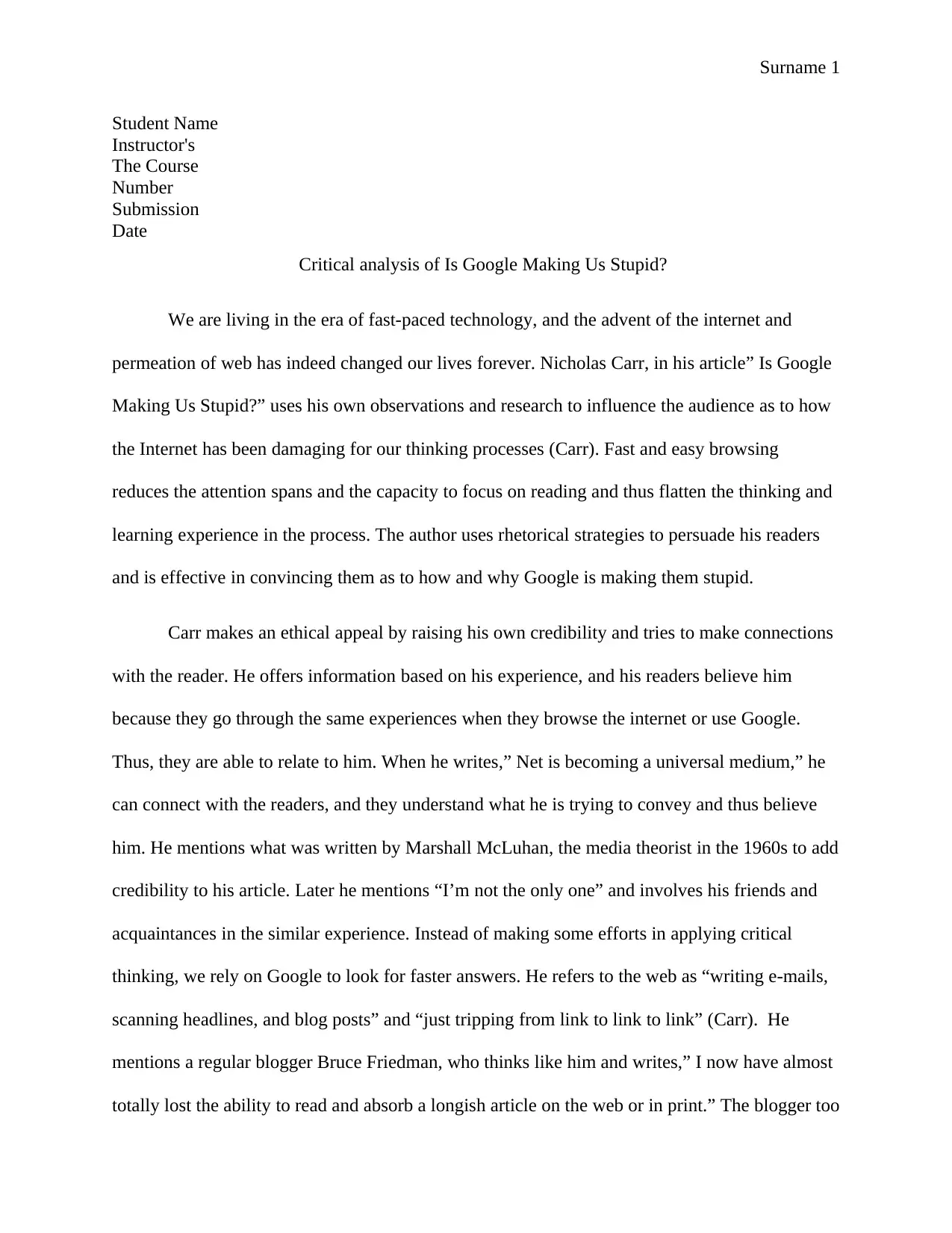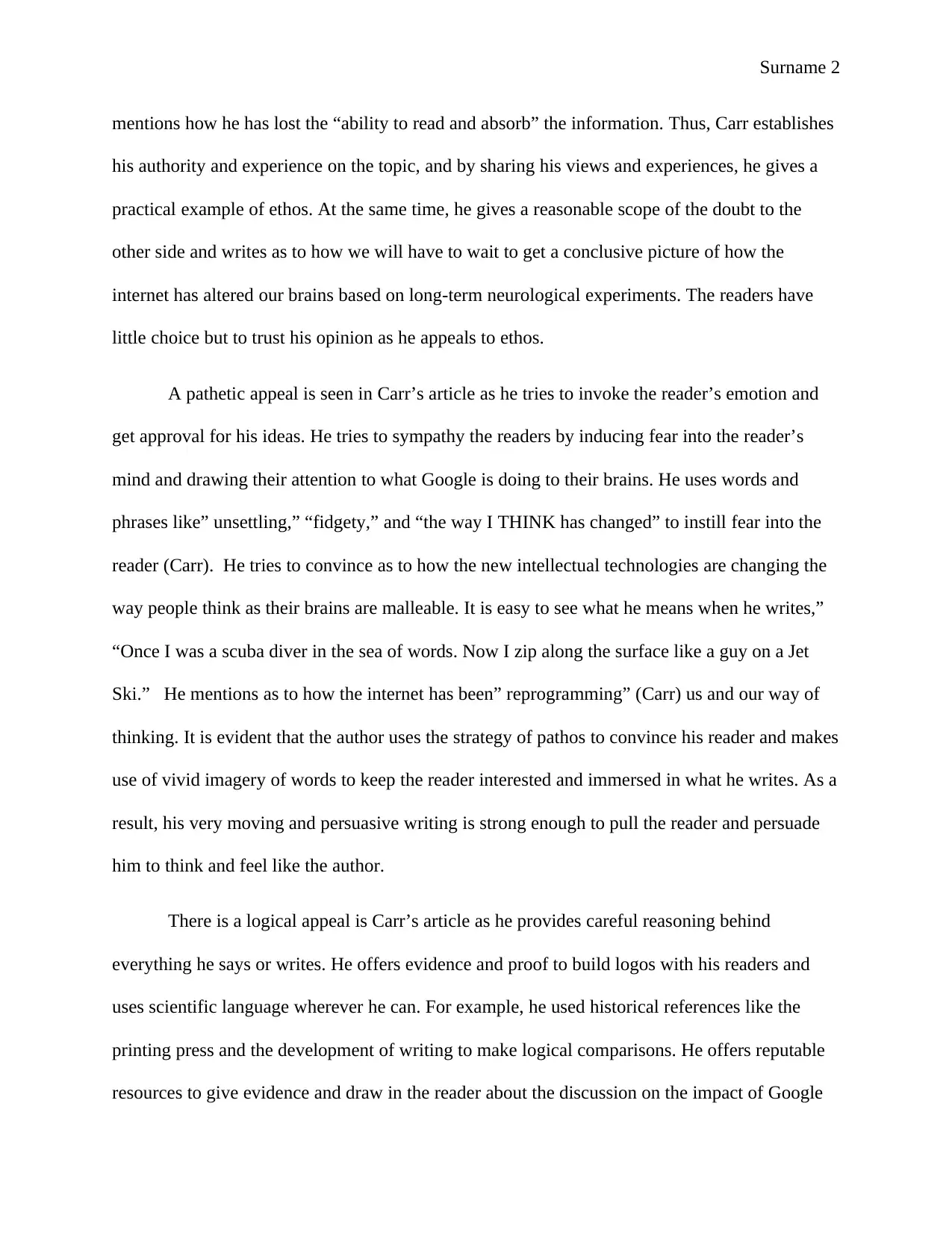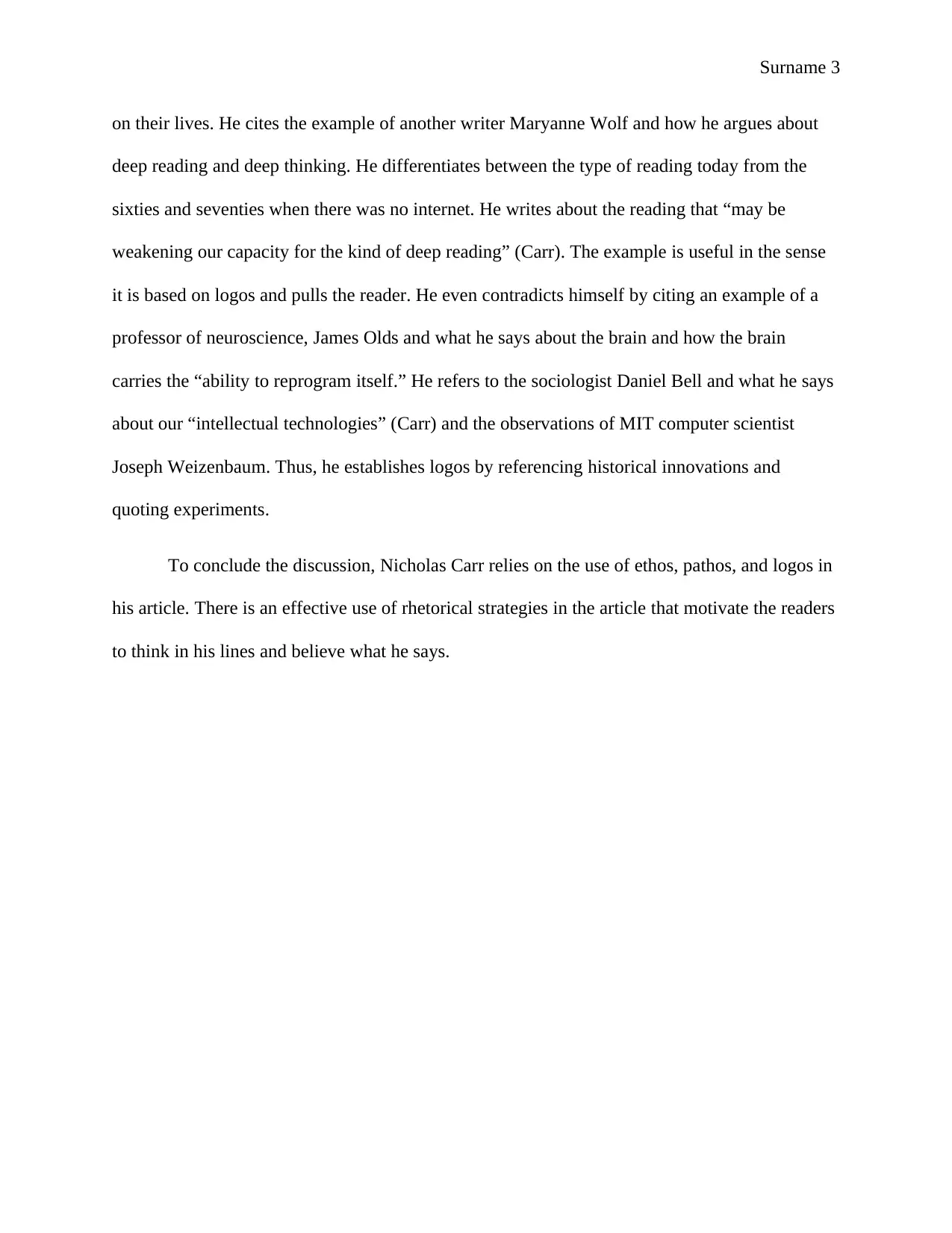In-depth Analysis: Nicholas Carr's 'Is Google Making Us Stupid?'
VerifiedAdded on 2023/03/30
|4
|909
|383
Essay
AI Summary
This essay presents a critical analysis of Nicholas Carr's "Is Google Making Us Stupid?", examining how Carr uses rhetorical strategies to persuade readers that the internet, particularly Google, negatively impacts our thinking processes. The analysis highlights Carr's use of ethos through personal experience and credible sources, pathos by evoking emotional responses concerning cognitive changes, and logos by providing logical reasoning and historical comparisons. The essay explores how Carr establishes his credibility, appeals to the reader's emotions, and offers evidence to support his argument that fast and easy internet browsing reduces attention spans and deep thinking capabilities. By referencing media theorists, bloggers, and scientific findings, Carr effectively conveys his concerns about the internet's influence on our brains, prompting readers to consider the potential consequences of relying on Google for information. Desklib offers similar solved assignments and resources for students.
1 out of 4









![[object Object]](/_next/static/media/star-bottom.7253800d.svg)